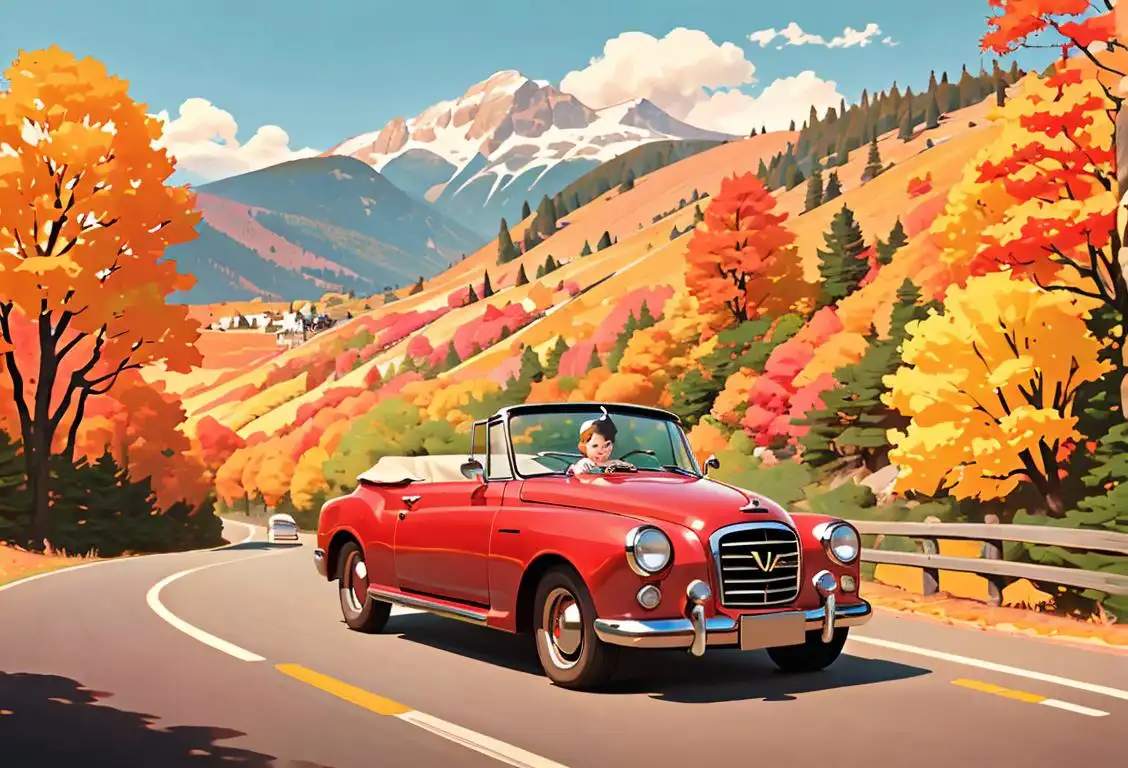National Drive Slow Day

Being in a hurry all the time can be exhausting. That's why we have National Drive Slow Day, a day dedicated to reminding us to slow down and enjoy the journey. So put on your favorite tunes, roll down the windows, and let's take a leisurely drive through the history of this delightful national day.
When is Drive Slow Day?
It's national drive slow day on the 12th November.
The Origins of National Drive Slow Day
It's time to pump the brakes and learn a little something about the origins of National Drive Slow Day. While we couldn't find a specific date associated with this day, we do know that it aims to promote safe driving and reduce accidents caused by speeding. The idea behind this day is to encourage drivers to slow down, be more aware of their surroundings, and practice defensive driving.
The advent of National Drive Slow Day can be attributed to the ever-increasing pace of our lives and the constant rush that seems to accompany our daily commutes. With the rise of road rage incidents and accidents due to speeding, it's more important than ever to have a dedicated day to remind us to take it easy on the roads.
Tips for Celebrating
Celebrating National Drive Slow Day is easy, and it doesn't require any fancy decorations or elaborate planning. Here are a few simple tips to make the most out of this relaxing day:
- Leave a few minutes early and avoid the need to rush.
- Take scenic routes instead of highways to enjoy the beauty around you.
- Play your favorite chilled-out playlist to set the mood.
- Take breaks and stretch your legs on longer drives.
- Drive defensively and be patient with other road users.
Did You Know?
Did you know that the world record for the slowest car journey was set in 2008? A team of students from the Netherlands took a whopping 74 days to travel from Nordkapp, Norway, to Cape Town, South Africa, in an electric car. Talk about embracing the slow life!
History behind the term 'Drive Slow'
1940
Birth of the Automobile Era
The term 'drive slow' originated during the early days of the automobile era in the 1940s. With the increasing popularity of cars, people quickly realized that driving at high speeds could be dangerous on the open roads. As a result, the concept of driving slow emerged to promote safer and more cautious driving habits. The phrase initially evolved as a simple reminder to drivers to maintain a slower speed in order to prevent accidents and ensure the safety of themselves and others.
1960
Rise of Traffic Safety Campaigns
During the 1960s, traffic safety campaigns gained significant momentum. Various governmental and non-governmental organizations started advocating for responsible driving practices. It was during this period that the importance of driving slow became more widely recognized. Public service announcements, educational programs, and road signages began emphasizing the need to drive slow to reduce accidents and curb fatalities on the roads. The term 'drive slow' gained further popularity and became a catchphrase associated with safe driving habits.
1980
Awareness of Environmental Impact
In the 1980s, as environmental concerns came to the forefront, the concept of driving slow evolved beyond just safety. People started realizing the detrimental effects of high-speed driving on both fuel consumption and air pollution. Driving slow gained recognition as an environmentally conscious practice aimed at conserving energy and reducing carbon emissions. This shift in perception contributed to the increased usage of the term 'drive slow' as a call for mindful and eco-friendly driving habits.
Present
Promotion of Mindfulness and Relaxation
Today, the term 'drive slow' extends beyond safety and environmental aspects. It has become a metaphorical reminder to take a more relaxed and mindful approach to life. By encouraging drivers to slow down their pace, it symbolizes the importance of reducing stress, enjoying the journey, and being present in the moment. 'Drive slow' has transcended its original purpose and now serves as a reminder to not only drive safely, but also to approach life's challenges with patience and serenity.
Did you know?
Did you know that the world record for the slowest car journey was set in 2008? A team of students took 74 days to travel from Nordkapp, Norway, to Cape Town, South Africa!Tagged
awareness funFirst identified
12th November 2015Most mentioned on
12th November 2015Total mentions
12Other days
Nurses Day
Former Prisoner Of War Recognition Day
Press Day
Handloom Day
Heroes Day
Memorial Day
Dance Day
Bestfriends Day
Liberation Day
Love Your Pet Day









